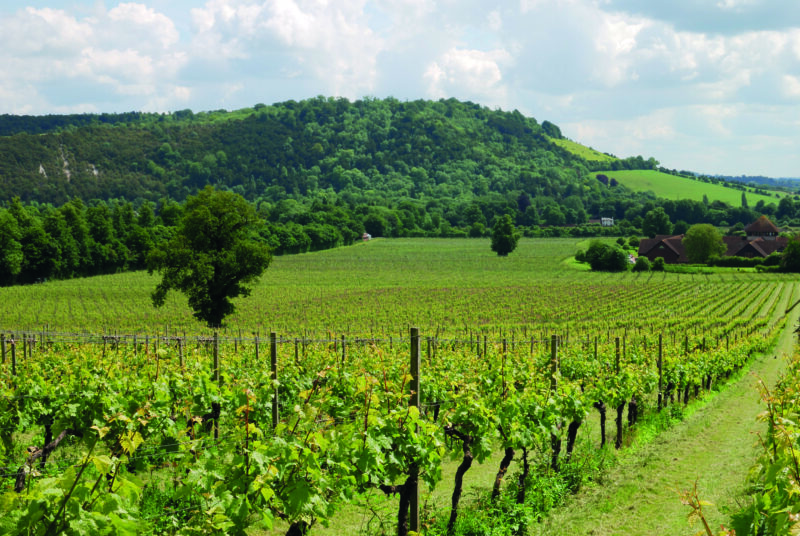Authors: Kate Gannon, Steve Dorling, Alistair Nesbitt, Declan Conway, Naeli Bena, and Johannes Borchert
Climate change is changing the face of global wine production, causing declines in some regions and creating opportunities in others – the UK among them. However, the UK sector, a relative newcomer to the modern-day wine industry, faces challenges in adapting to climate change as well.
This policy brief sets out the nature of these challenges and what needs to be done to strengthen resilience to climate change in UK viticulture. It draws on findings from the multi-partner CREWS-UK project.
Key messages
The UK wine industry now produces award-winning and internationally recognized wines, with higher temperatures being a major factor in the industry's recent growth. Consequently, wine production is often seen as a rare sector in the UK for which climate change presents an opportunity. However, climate change will continue to pose widespread challenges to wine production as well: it is already leading to greater fluctuations in growing conditions and more extreme weather events. The sector is working proactively to respond to climate change. Business leaders are incorporating plans to deal with its impacts into their strategic decision-making process, and a range of sector-wide initiatives are recognizing its importance. However, some of the ways in which the sector is evolving may limit its ability to adapt to changing circumstances in the future. A rapidly warming climate means that over the next 20 to 30 years (during the commercial productive life of the vine) growers and winemakers will need to take important additional steps to strengthen resilience to future climate change. Adaptive measures could include further changes to the grape varieties and styles of wine produced and increased investment in marketing still wines. Adaptation to climate change should also be placed at the heart of Protected Designation of Origin (PDO) certification requirements to avoid creating inflexible regulations that do not increase the opportunities for viticulture under a changing climate and that may lead to premature decisions with costly impacts later on. As the UK wine sector continues to expand rapidly, climate fluctuations could lead to periods of oversupply, impacting markets and prices for producers and the wider value chain – unless significant investments are made to create new markets for UK wine.
The following video highlights some of the findings of the policy brief


